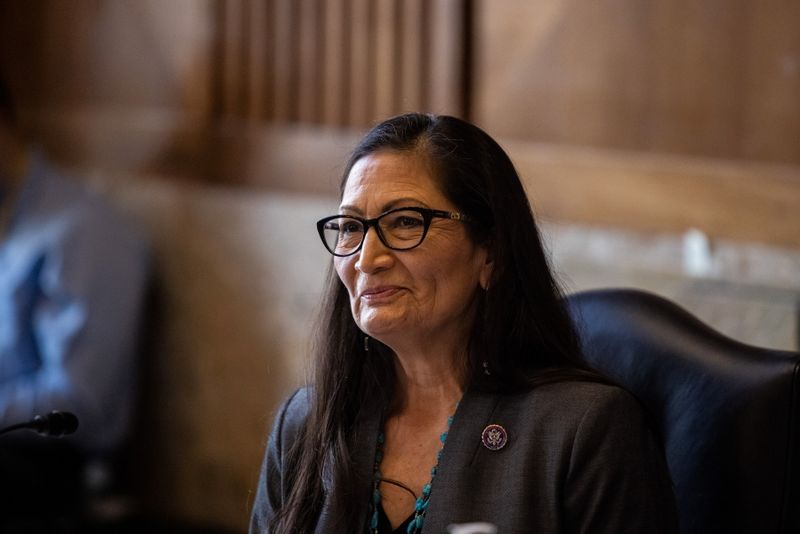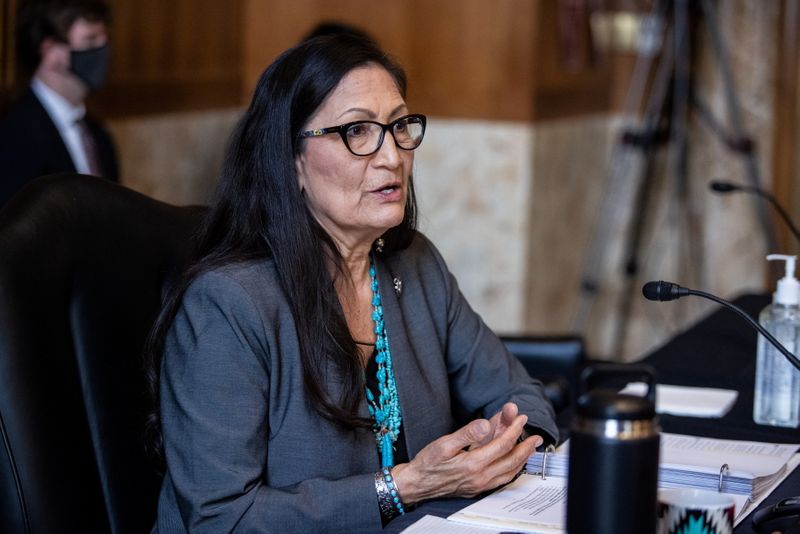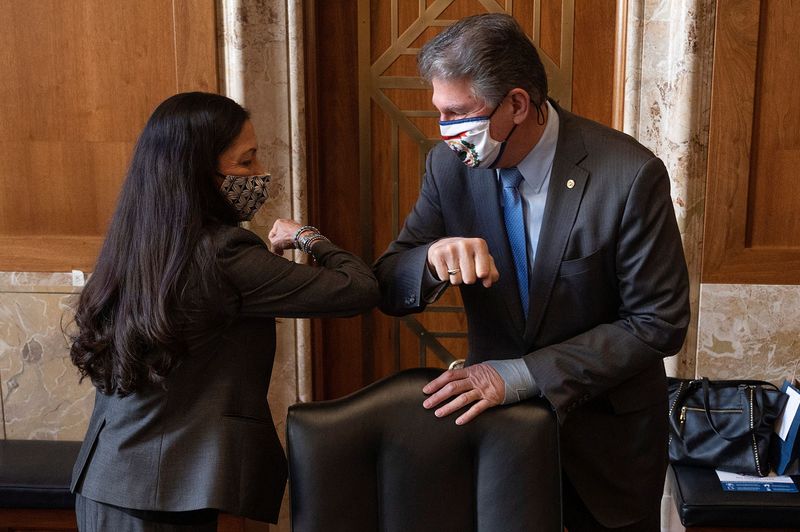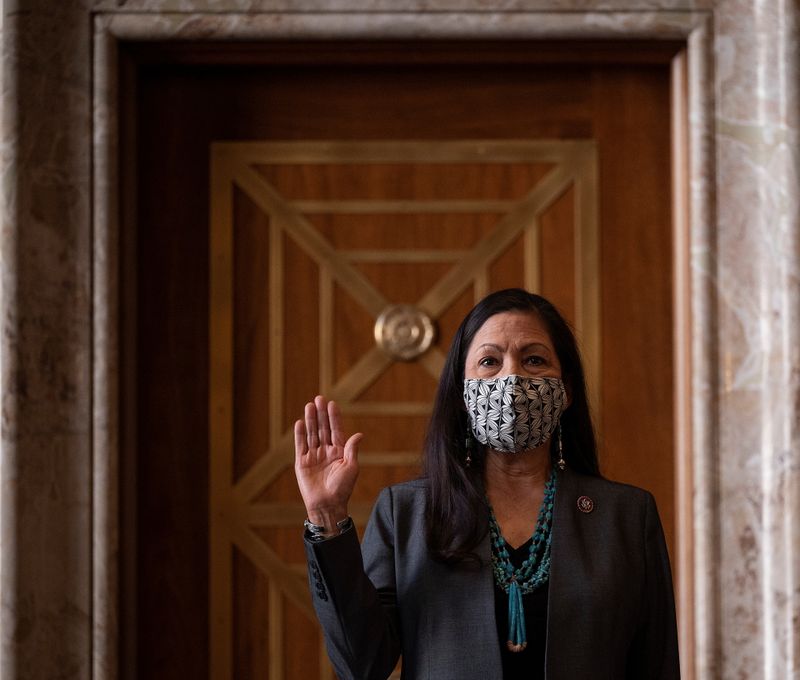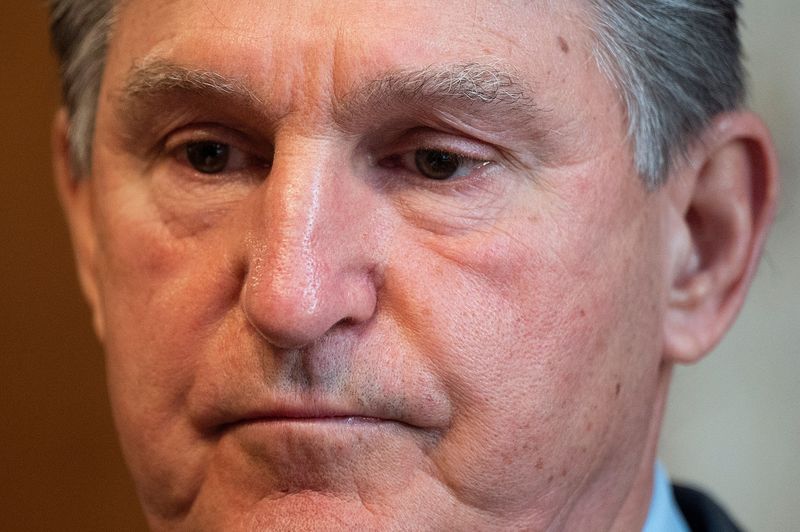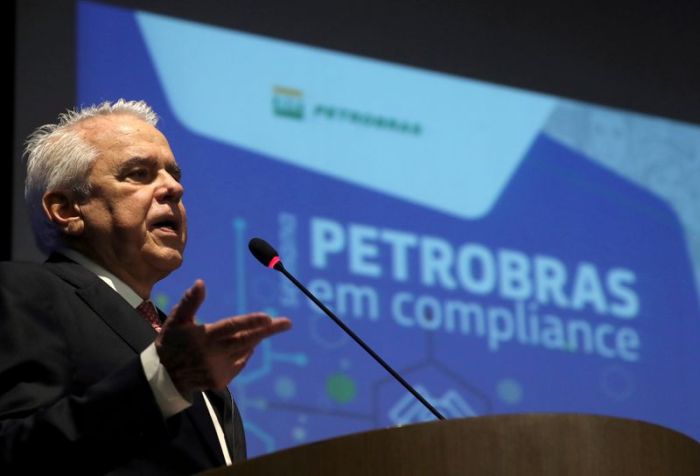WASHINGTON (Reuters) – Deb Haaland, the first Native American ever picked for a U.S. cabinet post, pledged on Tuesday to oversee the country’s vast public lands and waters in line with President Joe Biden’s climate priorities, and was grilled by Republican Senators who want an Interior Secretary more welcoming of oil and gas drilling on federal lands.
If confirmed to lead the Department of the Interior, the Democratic congresswoman from New Mexico would oversee more than 500 million acres of federal and tribal lands, accounting for about a fifth of the nation’s land surface, as well as offshore federal waters.
“It is President Biden’s agenda, not my own agenda that I would be moving forward,” she said at the contentious confirmation hearing that reflected deep divisions over some of Biden’s climate-focused executive orders. These include a pause on new oil and gas leasing on federal acreage, currently the source of around a quarter of U.S. production.
Republicans have been battling Biden’s sweeping plan to combat global warming and expand renewable energy sources like wind and solar power. But most Democrats on the panel applauded Biden’s focus on climate, a U-turn from former President Donald Trump’s policy. Trump emphasized oil, gas and coal production on federal lands over the fight against climate change.
Republicans on the Senate energy committee pressed Haaland on Biden’s pause on new federal drilling leases. They also challenged her past statements against oil and gas production and her presence at the protest against the Dakota Access pipeline led by the Standing Rock Sioux tribe.
Louisiana Senator Bill Cassidy asked Haaland if she had a prejudice against fossil fuels.
“Prejudice on fossil fuels perhaps isn’t the way I would describe it,” Haaland said. “I would say that President Biden is … moving toward the tremendous opportunities we have in diversifying our energy.”
Haaland, a Laguna Pueblo tribal citizen, said her own economic struggles as a single mother who relied on food stamps made her well attuned to the job and economic security concerns raised by senators from energy producing states. Republicans and some Democrats from those states are concerned that drilling restrictions or other measures to curtail fossil fuels development would cost them jobs and revenues.
She assured her critics that she recognizes that “fossil fuels will continue to play a major role in America” and that revenues fund critical services in states.
New Mexico Democratic Senator Martin Heinrich, who introduced Haaland, said she has a track record of working across the aisle.
He called her “a true partner for states like ours as we diversify our economy, invest in our communities and remain a global leader in producing and exporting energy.”
She noted that the administration’s temporary pause on new leasing does not apply to drilling and other operations by existing lease holders.
Republican Alaska Senator Lisa Murkowski called Haaland’s nomination “very significant” but raised concerns about the impact of Biden’s executive orders on her state’s resource-based economy. She said Interior has an “outsized” influence over Alaska, 60% of which is owned by the federal government.
Alaska Republican Congressman Don Young, who joined Heinrich in introducing Haaland, said despite their disagreements over “carbon fuels” she is able to listen and work across the aisle. He urged the Senate to vote for her because “she will do a good job. She will work for us.”
Haaland pointed to the historic nature of her appointment both at the Interior Department and in American history.
“If an Indigenous woman from humble beginnings can be confirmed as Secretary of the Interior, our country holds promise for everyone,” she said.
(Reporting by Valerie Volcovici; Editing by Aurora Ellis and David Gregorio)

